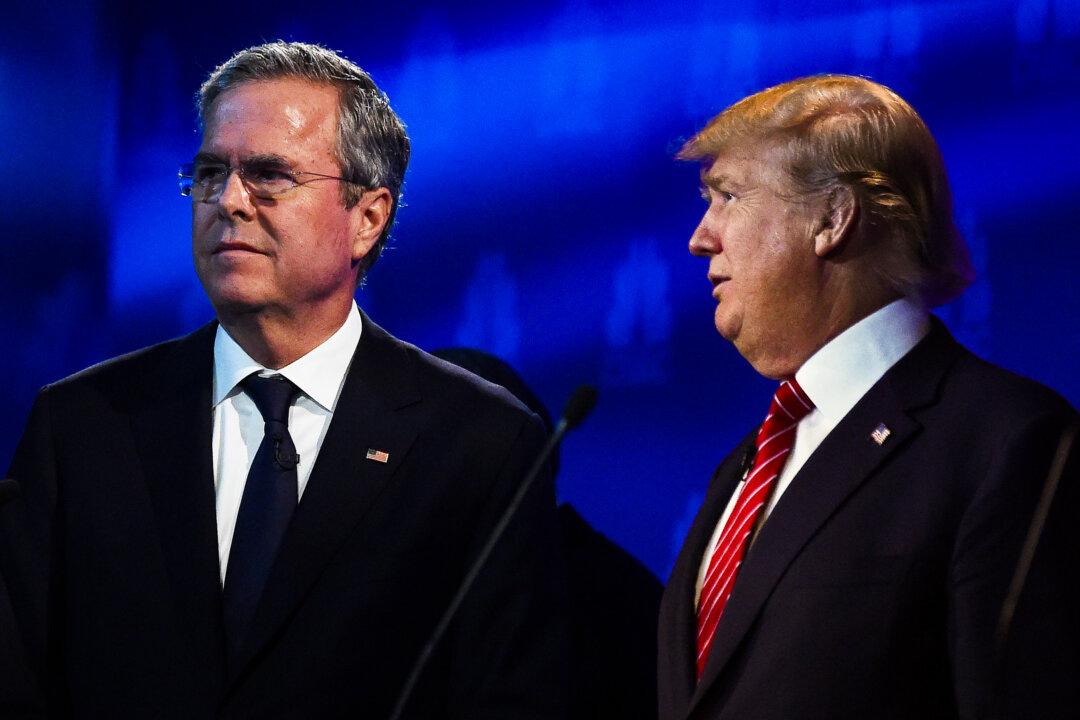Former Florida Gov. Jeb Bush, who unsuccessfully ran against then-candidate Donald Trump for president in 2016, came to his former foe’s defense after a New York judge issued a $355 million judgment against the former president.
Writing for The Wall Street Journal, Mr. Bush and Joe Lonsdale warned that the ruling and one against Tesla owner Elon Musk “imperil the rule of law” and also foster an anti-business environment in the United States.





